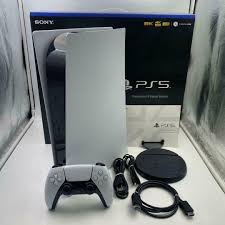It's remarkable to consider the computing power in our pockets—smartphones today have the processing capacity of a military computer that was the size of an entire room 50 years ago. However, despite the incredible advances in technology and classical computers since the computer revolution began, there are still challenges that classical computers cannot handle. Quantum computers, according to many, are the answer.
Traditional Computers' Limits
We need to develop an altogether new way of thinking about and designing computers now that we have made the switching and memory units of computers, known as transistors, almost as small as an atom. Even though a traditional computer allows us to do many amazing things, it's really just a calculator that interprets and makes decisions about the data we input using a sequence of bits—values of 0 and 1 to represent two states (think on and off switch)—following a predetermined set of instructions. Quantum computers are not meant to be a replacement for traditional computers; rather, they are projected to be a new tool for solving complicated issues that are beyond the capabilities of traditional computers.
In other words, as we move into a big data world where the amount of data we need to store grows, we'll need more ones and zeros and transistors to process it. Because traditional computers can only handle one thing at a time, the more complicated the problem, the longer it takes to solve. An intractable problem is one that demands more computing power and time than today's computers can provide. Quantum computers are expected to solve difficulties like these.
Quantum Computers' Potential
Things start to act in surprising ways when you enter the world of atomic and subatomic particles. These particles can, in fact, exist in multiple states at the same moment. Quantum computers take advantage of this capability.
A quantum computer uses quantum bits, also known as qubits, instead of bits, which are used in conventional computers. Consider a sphere to demonstrate the difference. A bit can be found at either of the sphere's two poles, but a qubit can be found anywhere on the sphere. As a result, a computer using qubits may store a tremendous amount of data while consuming less energy than a traditional computer. We will be able to construct processors that are substantially quicker (a million or more times) than the ones we use now by entering this quantum computing domain, where ordinary laws of physics no longer apply. Sounds amazing, but quantum computing is also extremely difficult to master.









